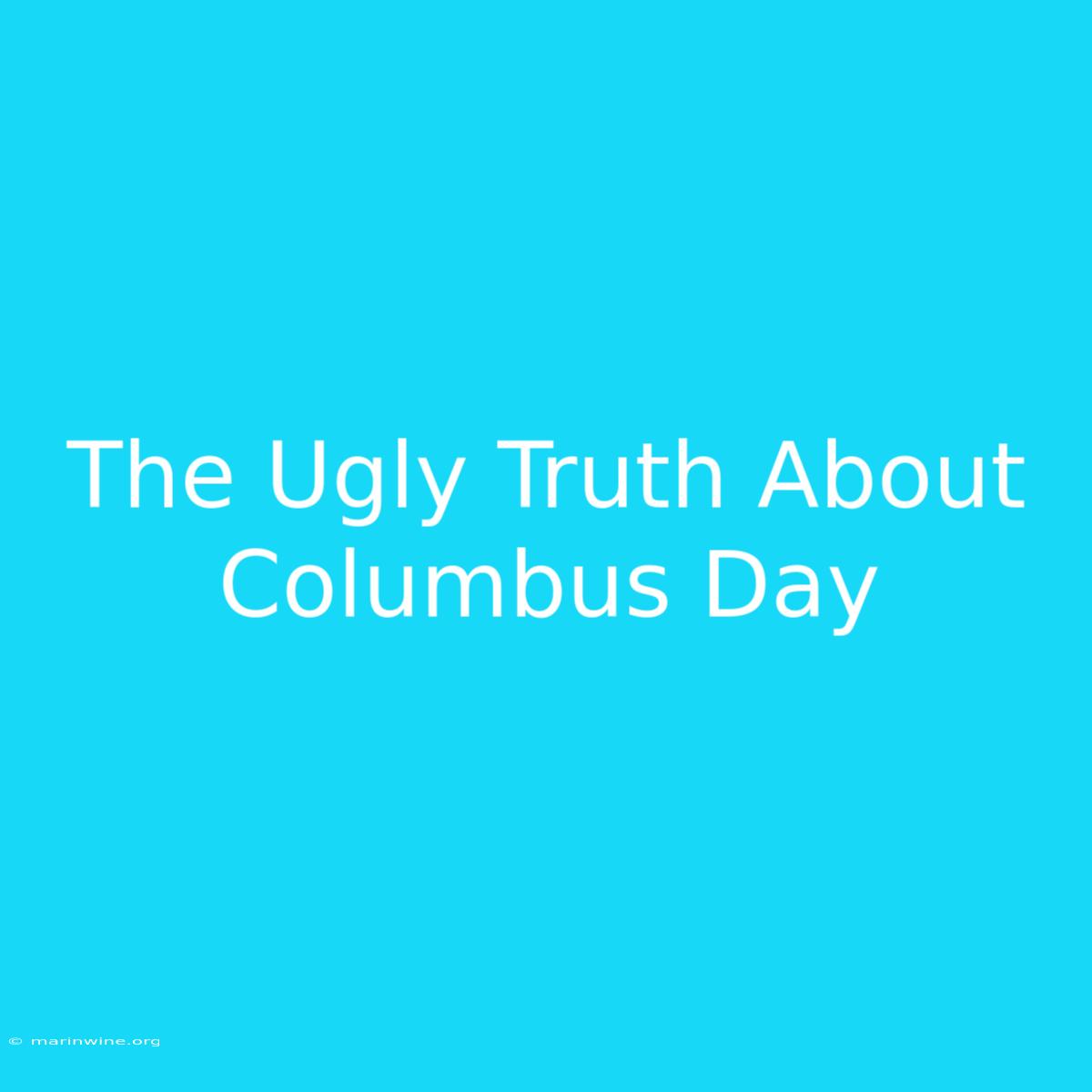The Ugly Truth About Columbus Day: More Than Just a Holiday
Columbus Day, celebrated annually on the second Monday of October, is often portrayed as a day to celebrate the arrival of Christopher Columbus in the Americas. However, beneath the surface of this celebratory narrative lies a complex and often uncomfortable history.
Beyond the Myth: A History of Exploitation and Genocide
While Columbus's voyages are often heralded as a momentous event in history, the reality is far more sinister. His arrival in the Americas marked the beginning of a brutal era of colonization, enslavement, and genocide for Indigenous peoples.
- The Myth of Discovery: The term "discovery" itself is problematic. Indigenous peoples had inhabited the Americas for thousands of years before Columbus's arrival. Their civilizations, cultures, and languages existed long before Europeans set foot on their lands.
- Forced Labor and Enslavement: Columbus's voyages were fueled by greed for gold and spices. He established brutal systems of forced labor, enslaving Indigenous people and subjecting them to inhumane conditions. This exploitation led to the deaths of countless individuals.
- Disease and Genocide: The introduction of European diseases, to which Indigenous peoples had no immunity, decimated populations. This, coupled with systematic violence and displacement, led to a devastating decline in Indigenous populations across the Americas.
Beyond the Commemoration: A Call for Truth and Reconciliation
While celebrating Columbus Day may seem harmless, it perpetuates a romanticized narrative that ignores the atrocities committed against Indigenous peoples.
- Reframing the Narrative: Instead of celebrating Columbus, we should acknowledge the impact of his arrival and the ongoing struggles faced by Indigenous communities.
- Truth and Reconciliation: It's crucial to learn about the true history of colonization and to engage in discussions about the lasting effects of these events.
- Honoring Indigenous Voices: Let's give space to Indigenous voices to share their perspectives and experiences, ensuring that their stories are heard and understood.
The Importance of Challenging the Status Quo
Celebrating Columbus Day without acknowledging its dark side perpetuates a false narrative. It's time to move beyond romanticized history and embrace a more honest and inclusive understanding of the past. By challenging the status quo and demanding a more accurate representation of history, we can pave the way for a more just and equitable future for all.
Moving Forward: What Can We Do?
- Educate Yourself: Engage with books, documentaries, and resources that provide accurate and nuanced accounts of Indigenous history.
- Support Indigenous Communities: Learn about and support Indigenous organizations working to preserve their culture, languages, and land rights.
- Challenge Misinformation: Speak out against any attempts to downplay or dismiss the impact of colonization on Indigenous peoples.
By acknowledging the truth about Columbus Day, we can begin to dismantle the harmful myths and create a more inclusive and respectful understanding of our shared history. Let's move forward with truth, reconciliation, and a commitment to honoring the resilience and strength of Indigenous peoples.

